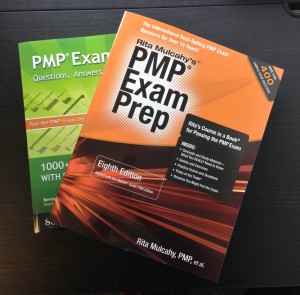Guest Author

July 3rd, 2014
Project Management is a growing field with job postings everywhere and articles claiming that certified Project Managers make higher salaries. But what are the steps needed to get there? And how can you get in on the action?
Take your time and investigate
Your first step is to do a little research. There are financial aspects to becoming a PMP® such as paying for the exam and the prep course; timing aspects like taking time off work to prepare for the exam; and personal aspects like planning that next career jump.
Everyone is different, so don’t feel like these are the only pieces to consider. There may be additional factors in your life that impact your decision. These are simply a good starting place.
Is experience required?
Your next step is to gain some experience. I know what you’re thinking: everything requires experience, but hear me out.
Experience is a vital part of career planning. If you’re not happy doing what you’re doing, you shouldn’t keep going down that path. But just as every mother tells her child about a new food – how will you know what you like if you haven’t tried it?
Project Management Institute’s website states that you must have between three and five years of project management experience before you get certified, depending on your level of education. If you’re considering the PMP® Certification, chances are you’ve already been working in the project management field for a while, so that shouldn’t be an issue.
Examine the prerequisites, you don’t need a four year degree
If you have a four-year degree, you will need three years of project management experience, including 4,500 hours initiating, planning, executing, monitoring and controlling, and closing projects. If college wasn’t for you, that’s okay too. If you have a high school diploma or GED, you will need five years of project management experience with 7,500 hours of leading projects.
The topics covered in class and on the PMP® exam are rather extensive and will build on your prior knowledge to push you to that next level.
Additionally, you should have 35 hours of project management education before you take the exam, regardless of your degree.
Warming up with CAPM®
Not sure you’re quite ready for the PMP® cert yet? Try CAPM® as a starting place. The Certified Associate in Project Management® Certification requires significantly less experience. A CAPM® training course will suffice as a prerequisite for the exam, and it will provide you with a strong foundation that sets you up for success in the field of project management.
Are you ready for PMP®?
The bottom line is that the PMP® Certification is proof of your project management talents and skills. Getting the certification is no easy undertaking, and it requires experience and dedication. But with the right guidance, you can make it happen.
For more information about PMP, check out our Project Management Professional (PMP®) Certification training course description.

subscribe by email
Stay Ahead
Related Posts
-
Project Management
The FYI ABOUT PMP from PMI
January 22, 2021
-
Project Management
IT Project Managers, a career of keeping business IT on track!
July 8, 2020
-
Cloud
Head in the Cloud? Time to Face Cyber Security Reality
April 2, 2020
